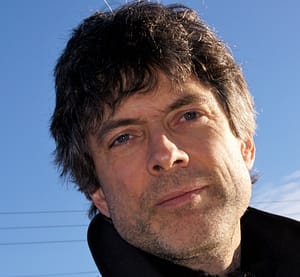What We Think About When We Try Not To Think About Global Warming
Toward a New Psychology of Climate Action

| Pages: | 320 pages |
| Book Art: | Black & white images black & white charts & graphs |
| Size: | 5.99 x 9 inch |
| Publisher: | Chelsea Green Publishing |
| Pub. Date: | March 18, 2015 |
| ISBN: | 9781603585835 |
What We Think About When We Try Not To Think About Global Warming
Toward a New Psychology of Climate Action
Paperback
$24.95
Why does knowing more mean believing—and doing—less? A prescription for change
The more facts that pile up about global warming, the greater the resistance to them grows, making it harder to enact measures to reduce greenhouse gas emissions and prepare communities for the inevitable change ahead.
It is a catch-22 that starts, says psychologist and economist Per Espen Stoknes, from an inadequate understanding of the way most humans think, act, and live in the world around them. With dozens of examples—from the private sector to government agencies—Stoknes shows how to retell the story of climate change and, at the same time, create positive, meaningful actions that can be supported even by deniers.
In What We Think About When We Try Not To Think About Global Warming, Stoknes not only masterfully identifies the five main psychological barriers to climate action, but addresses them with five strategies for how to talk about global warming in a way that creates action and solutions, not further inaction and despair.
These strategies work with, rather than against, human nature. They are social, positive, and simple—making climate-friendly behaviors easy and convenient. They are also story-based, to help add meaning and create community, and include the use of signals, or indicators, to gauge feedback and be constantly responsive.
Whether you are working on the front lines of the climate issue, immersed in the science, trying to make policy or educate the public, or just an average person trying to make sense of the cognitive dissonance or grapple with frustration over this looming issue, What We Think About When We Try Not To Think About Global Warming moves beyond the psychological barriers that block progress and opens new doorways to social and personal transformation.
Reviews & Praise
"This book will initiate a paradigm shift in thinking about and discussing climate change. Read it soon. Essential.”—Choice, winner, Outstanding Academic Title 2015
"Mahatma Gandhi said 'First they ignore you, then they laugh at you, then they fight you, then you win.' We’re in this last phase but to win we need to change tactics, from using guilt to draw attention to instead using persuasion to change behavior and policy at a mass scale. Per Espen Stoknes shows the way with this brilliant description of how to go with rather than against the flow of human nature and thus shift society to action. There is no more important challenge facing society today and Stoknes's contribution is crucial.”—Paul Gilding, author of The Great Disruption
"The human brain is poorly equipped to cope with mind-numbing problems like climate change. Per Espen Stoknes tell us why―and then explains what we can do to change the way we think, act, and live. Highly recommended."—John Elkington, cofounder of Volans, SustainAbility, and Environmental Data Services (ENDS), and coauthor of The Breakthrough Challenge
"Science is no longer the bottleneck to action on climate change. Why do we so often ignore, deny, and resist the science? Why aren’t we outraged, demanding change? In a style both rigorous and personal, Per Espen Stoknes explains why, and more importantly, offers strategies for success. A pleasure to read, this book can help us all become more understanding, more committed, more effective―and, along the way, more joyful."—John Sterman, professor, MIT Sloan School of Management, and author of Business Dynamics: Systems Thinking and Modeling for a Complex World
"Stoknes has done a service for readers alarmed or concerned about global warming. He provides helpful strategies for accepting and dealing with their own reactions to the evidence, reducing carbon footprints, and influencing others to do likewise.”—Library Journal
"How, most effectively, to communicate the reality and ramifications of a slow-motion planetary meltdown? Whether you are a scientist or a CEO, an activist or a slacker, this book provides a simple toolkit for breaking down frozen attitudes. As a work that surveys a great deal of psychological research, it's at once accessible, practical, and – in its last third – richly reflective and evocative. In these concluding chapters Stoknes wrestles eloquently with the ways in which earthly calamity reverberates and sometimes wreaks havoc in any person’s innermost sense of self and meaning."—David Abram, author of The Spell of the Sensuous
"In a fresh and intimate voice Per Espen Stoknes navigates the obstacles and collective denial of climate change. Drawing on his own deep love of nature he suggests ways to overcome our ‘Deep Grief’ by creating a spiritual connection with the air around us. In every way this is a book full of new perspectives and insights."—George Marshall, author of Don't Even Think About It: Why Our Brains are Wired to Ignore Climate Change
"Combining an entrepreneur’s innovation with an economist’s analytics and a psychologist’s knowledge of human behavior, Per Espen Stoknes gives us a much-needed guide to moving beyond the politics and paralysis that generally cripple action on climate change, and provides us with concrete ways to inspire grounded hope for real climate solutions”—Heidi Cullen, chief scientist, Climate Central
"If information enlightened, then effective climate policies would have been put in place two decades ago, after the second IPCC assessment. The recent, massive fifth assessment enlightens only a teeny bit more. Stoknes’ small, powerful, readable book enables us to build the social networks that will lead to action and change our old stories, the blinders that comfort so many along our path to destruction. Read it, get to work, and find joy in being effective."—Richard B. Norgaard, coauthor of The Climate Challenge Society and professor emeritus, University of California at Berkeley
“In this earnest and well-organized volume, Stoknes introduces a new aspect to the discussion, focusing not on the phenomenon’s causes or consequences, but people’s responses to it, including how they think, what they do, and how they live in the world…Stoknes effectively combines talk of social psychology with environmental activism.”—Publishers Weekly





